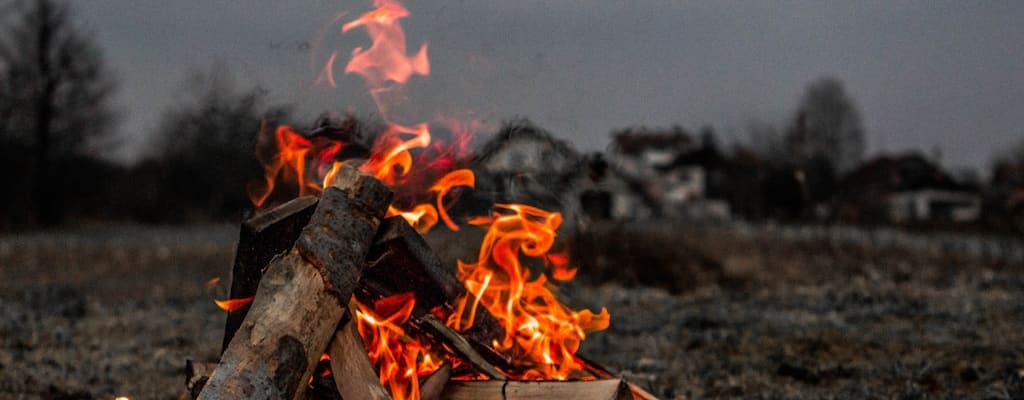play with fire: Idiom Meaning and Origin
What does ‘play with fire’ mean?
The idiom "play with fire" means to engage in a dangerous or risky activity, often knowing the potential consequences but still proceeding anyway.

Idiom Explorer
The idiom "take a flyer" means to take a risk or gamble without considering the potential consequences or likelihood of success.
The idiom "push one's luck" means to take a risk by continuing to do something in a way that may result in negative consequences. It implies exceeding the limits of what is sensible or safe, often arrogantly or overconfidently. This idiom warns against testing good fortune too much, as it may lead to unfavorable outcomes.
The idiom "pour gasoline on the fire" means to aggravate or worsen a situation by adding more conflict or controversy.
"Play to win" is an idiom that means to engage in a situation or activity with the intention of achieving victory or success, rather than just participating or going through the motions. It emphasizes the importance of being competitive and putting forth one's best effort to achieve a specific goal or outcome.
The idiom "play the ponies" refers to the act of betting on horse races, often at a racetrack. It implies engaging in gambling or taking risks in hopes of monetary gains.
The idiom "play the man and not the ball" means to focus on attacking or criticizing someone personally instead of addressing the issue at hand. It implies a diversion from the main point of the argument and resorting to personal attacks instead.
The idiom *play the hand one is dealt* means to make the best out of a situation or circumstances that one cannot control.
The idiom "play the fool" means to act silly or foolish, often for amusement or as a way to hide one's true thoughts or intentions.
The idiom "play someone like a fiddle" means to manipulate or control someone skillfully, often for personal gain or amusement.
One meaning of the idiom "play on words" is when a word or phrase is used in a clever or amusing way to create a double meaning or a pun.
Igniting dangerous curiosity
The idiom "play with fire" has a literal meaning as well as a metaphorical one. Literally, it refers to engaging in a potentially dangerous activity involving fire. Metaphorically, it signifies acting recklessly or taking unnecessary risks. The phrase is believed to have originated from the Greek myth of Prometheus, who stole fire from the gods and faced dire consequences. This cautionary tale serves as a reminder of the dangers of defying the gods and meddling with forces beyond human control.
In a metaphorical sense, "play with fire" warns against risky or dangerous behavior. It implies the need for caution and consideration of potential consequences before engaging in actions that could have negative outcomes. The idiom advises against participating in activities that may seem exciting but could ultimately result in harm or regret.
This idiom has been widely used in literature, films, and everyday language throughout history. It has vivid imagery and universally understood associations with the potential dangers of fire. The idiom has been applied in various contexts, such as relationships, business decisions, and personal choices, to convey the idea that taking risks without proper consideration can have severe and irreversible consequences.
The phrase "play with fire" has become firmly entrenched in the English language, and its meaning has remained consistent over the centuries. It serves as a reminder of the risks and harm that can come from engaging in reckless behavior or making thoughtless decisions.
Speaking of risks and consequences, there is a related idiom called "play with house money." This phrase originated from the gambling world and refers to the act of gambling with money that you have already won. It implies the willingness to take additional risks since the money being gambled is not one's own, essentially playing with someone else's money. This idiom highlights the idea of taking advantage of fortunate circumstances and being more willing to take risks when you have nothing to lose.
Another related idiom is "take a flyer." This phrase is often used in the business world and means to take a risk or chance on something with uncertain outcomes. It implies a willingness to step outside of one's comfort zone and try something new, even if success is not guaranteed. "Take a flyer" conveys the idea of embracing uncertainty and the possibility of failure in pursuit of potential rewards.
Lastly, the idiom "play games" also relates to the concept of taking risks. This phrase is commonly used to describe someone who is being deceptive or manipulative in their actions or behavior. It implies a level of calculated risk-taking, where individuals engage in strategic maneuvers to achieve their desired outcome. "Play games" highlights the idea of testing boundaries and pushing limits to gain an advantage, often at the expense of others.
The idiom "play with fire" carries both a literal and metaphorical meaning. It warns against engaging in dangerous activities involving fire while also serving as a cautionary metaphor for taking unnecessary risks without considering the potential consequences. The idiom's longevity and continued usage highlight its resonance with individuals across time and culture. It serves as a reminder of the delicate balance between curiosity and recklessness, urging individuals to approach potentially risky situations with caution and forethought.
Example usage
1. Sarah is playing with fire by constantly procrastinating on her assignments. She knows it will eventually catch up with her and affect her grades.
2. The new employee started spreading rumors about her coworkers, not realizing that she was playing with fire. Soon enough, her actions created a toxic work environment.
3. Jack decided to invest all his savings in a risky cryptocurrency without fully understanding the market. He was playing with fire and ended up losing all his money.
More "Risks" idioms



